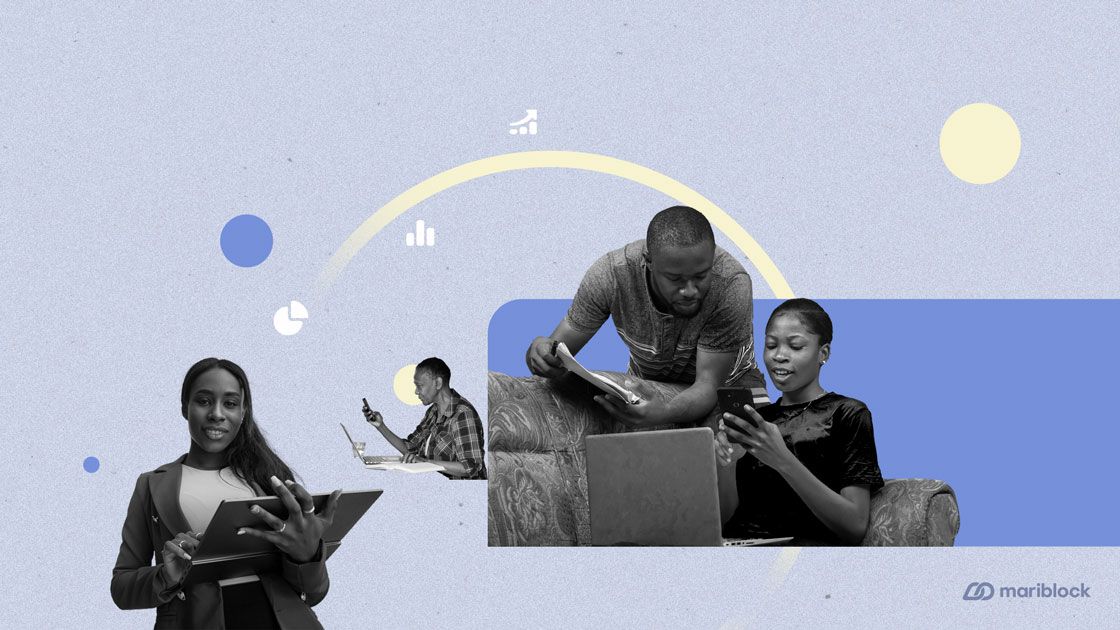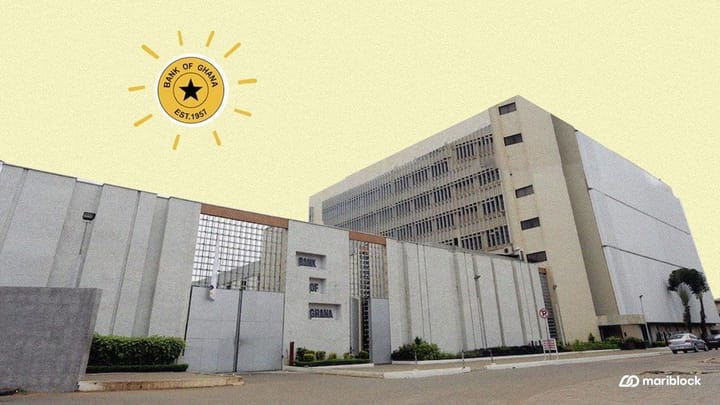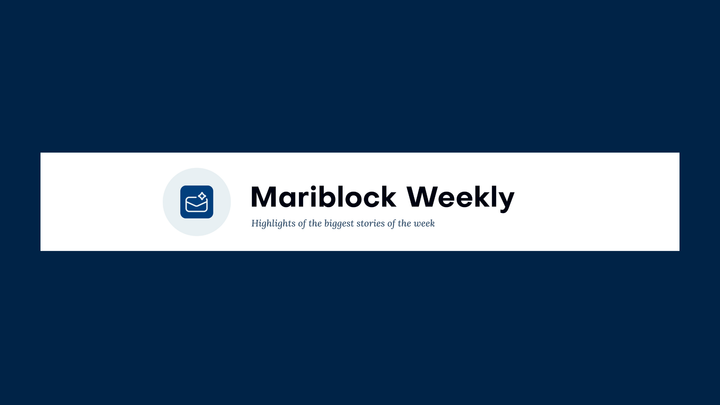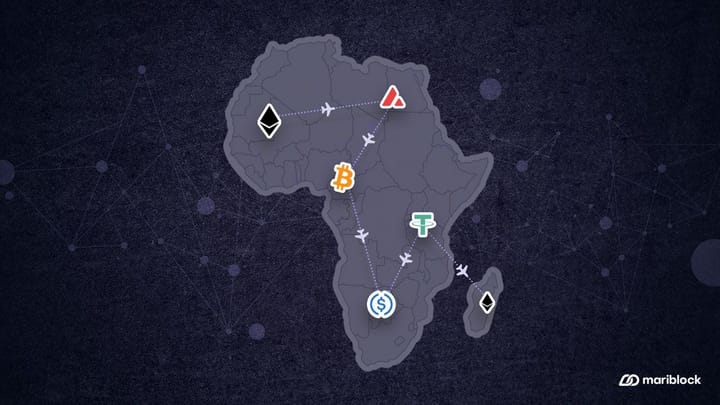How blockchain is being used to address low mobile internet access in Africa
A recent World Bank report found that mobile internet access can alleviate poverty. Yet, Africa lags in internet use. Some blockchain companies are trying to fix this.

Despite the global increase in mobile internet adoption, Sub-Saharan Africa (SSA) remains the region with the most extensive coverage gap. A new World Bank report shows that SSA has the lowest usage rate of digital technology globally, with only 22% of the population using mobile internet as of the end of 2021.
According to the report titled “Digital Africa: Technological Transformation for Jobs,” the factors responsible for the relatively low adoption of digital technology in Africa include:
- Affordable availability,
- Attractiveness, and
- User capability.
As the report explains, affordable availability involves the accessibility of quality digital service at reasonable rates. On the other hand, attractiveness refers to the willingness to use digital technology. User capability — including university education and technological skills — also affect people’s ability to extract value from digital technologies.
Key quote
“On average across countries in SSA, 84% of a given country’s population had at least some level of 3G mobile Internet availability, and 63% had some level of 4G mobile Internet services, but only 22% were using mobile Internet services at the end of 2021,” says the report.
But can blockchain help?
The short answer is … yes, it potentially can.
At least two companies are poking away at some of the problems highlighted in the report — especially the challenge of internet unavailability and affordability.
The long answer comes after discussing a few important details about why adopting digital technologies matters.
Digital technology is efficiently tackling unemployment and poverty
The World Bank study finds that internet availability positively impacts jobs and welfare and that digital technology — broadly defined as digital and data infrastructure, internet, smartphones, and computers — can enable economic transformation and boost aggregate growth.
It highlighted that, in Nigeria, for instance:
- Labor force participation and wage employment increased by three percentage points and one percentage point, respectively, in areas having three or more years of exposure to internet availability.
- The proportion of households living below the extreme poverty level ($1.90 per person per day) declined by seven percentage points after three years.
Internet availability also improved jobs and welfare in Tanzania.
- Individuals living in areas with internet availability witnessed increases of 8 percentage points in labor force participation and four percentage points in wage employment.
- The proportion of households living below extreme poverty dropped by seven percentage points.
The World Bank recommends education, policy and innovation approaches to build on these gains.
- On education: the study advises that the internet should be viewed as a means of increasing household earnings and reducing poverty.
- On policy: governments should introduce policies to expand access to credit; better regulations and price reductions can help solve the affordability issue. In addition, the World Bank recommends that governments should introduce policies that can induce the development of easy-to-use digital technology and information on its importance through community-based associations, town hall meetings, and others.
- On Innovation: the development of sophisticated, creative and simple-to-use apps with touch screens, voice and videos in the many languages Africans speak can also drive the adoption of these technologies, the report added.
As mentioned earlier, blockchain can play a part.
The blockchain solution
Blockchain could play a part in solving some of the underscored challenges in the World Bank report. The most significant barriers — per the report — are affordability and availability. Some blockchain projects have sprung up to tackle these problems.
World Mobile
World Mobile Group, a global telecommunications operator, uses blockchain to deliver internet services to the unconnected in Tanzania using free-space optical communication and other radio transmitters. These do not require licensing and therefore translate to less expensive internet access. World Mobile CEO Micky Watkins told TechCrunch in an interview that his company can offer affordable internet because it does not have to pay licenses for the spectrums.
Telling quote
“There’s a lot of fiber optics that have been laid throughout the continent, and we pick up on the last mile of fiber and use alternative spectrums like free-space optics, or other radio spectrums that do not require licensing,” World Mobile group CEO and founder Micky Watkins.
According to the group, World Mobile is a decentralized network owned by the people.
How World Mobile works
World Mobile uses aerostats (essentially giant balloons holding telecommuting tools) to tether connectivity to the down. For efficient distribution, the connection is tethered through antenna-type devices called AirNodes. The end users receive connectivity through an AirNode close to them.
World Mobile builds and manages the aerostats. However, anyone, including users, can earn money by owning and maintaining an AirNode. Each AirNode provides reliable Wi-Fi internet to between 500 and 700 people — for $4 a month. Frankly, none of the above requires blockchain. So it appears that the only usefulness of blockchain is to encourage community participation, which World Mobile says is critical to scaling its solution worldwide.
This reward system could help to stimulate the willingness to use, and subsequently, the growth of mobile network infrastructure in Africa.
3air
3air is another blockchain-based platform seeking to connect the unconnected by providing “high-speed” broadband internet to Africa. The company aims to issue digital identities to African users and drive financial inclusion by offering digital financial services. However, the cost of the service and evidence of successful projects in Africa is unclear.
Additionally, blockchain technology can enable the creation of decentralized apps (dapp) that could run on the blockchain-based mobile Bangladesh-based apps could provide services such as messaging, calling, or file sharing, mesh-enabled help to bridge the digital divide and provide access to communication services for individuals in areas with limited infrastructure.
W3 Engineers
Outside Africa, W3 Engineers — a Bangladesh-based software company — provides internet services to the unconnected using mesh-enabled blockchain. A refugee camp messaging app was created in 2018, which allowed refugees to send direct messages to each other. The app also provided capabilities for emergency broadcast and critical messaging directly between NGOs, aid workers and refugees.



